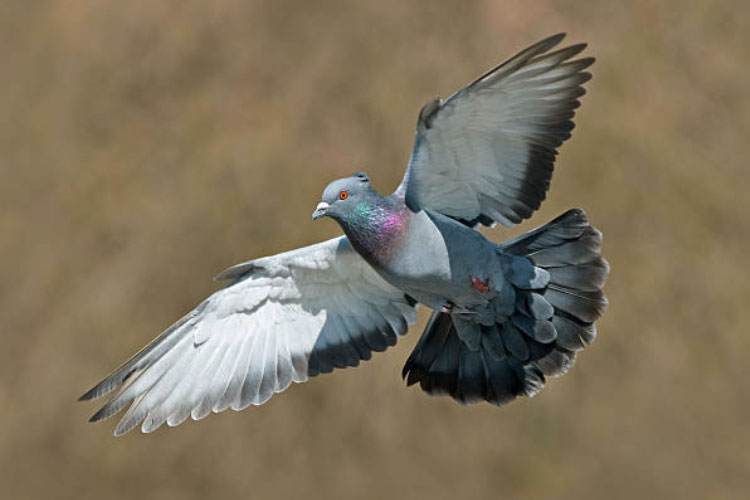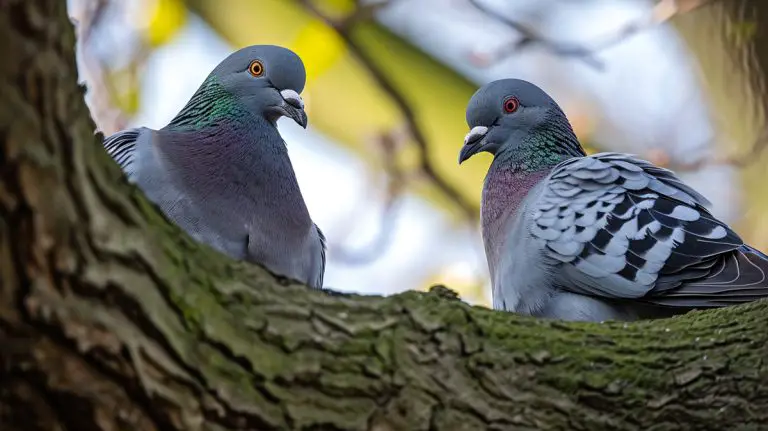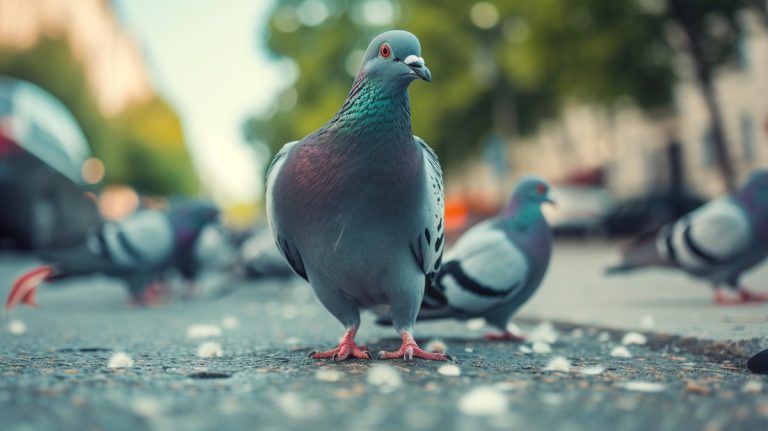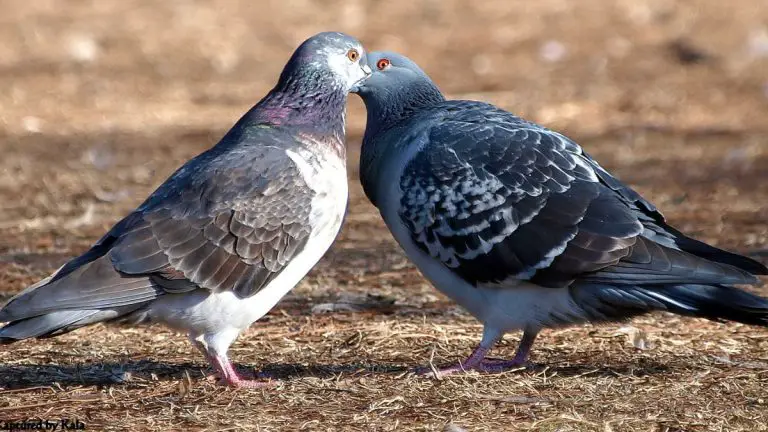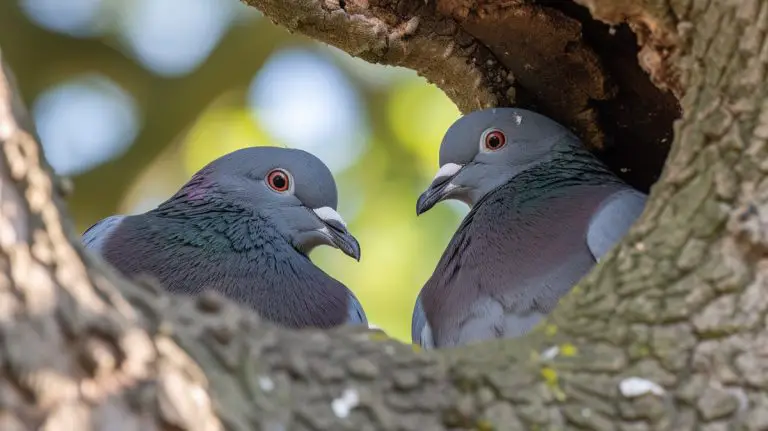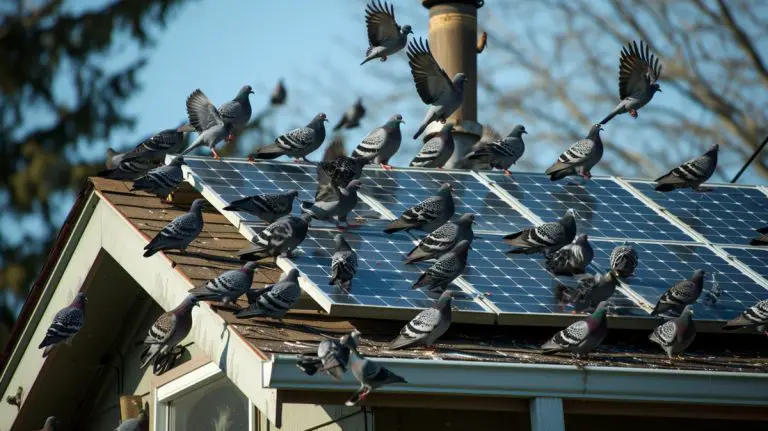Why Do Pigeons Attack Humans? We Have the Answer!
Pigeons, or rock doves, are frequently spotted worldwide in cities and urban areas. Though seen as pesky, they are often characterized as harmless creatures. However, there have been reports of them attacking humans.
But why do pigeons attack humans? Pigeons may act aggressively towards humans if they perceive them as a threat to their nests or offspring. Additionally, they may act aggressively if the birds are frightened or threatened. In some instances, pigeons may approach people hoping to be given food and could turn aggressive if it is not given.
We’ll explore the reasons why pigeons may resort to attacking humans. Also, we’ll discuss what a pigeon attack looks like and what you can do to avoid becoming a target.
Why do pigeons attack humans?
Generally, pigeons possess an innate fear of humans and rarely act aggressively. Nonetheless, certain situations may induce a violent response. Let’s look at a few of the more common reasons for such a reaction.

Territorial Defence
To start, pigeons are instinctively very protective of their nests and will ward off potential intruders. This behavior can often extend to humans if they approach too close to a pigeon’s territory. This causes the bird to act aggressively to get the person to leave.
Food
Pigeons may display aggression towards humans if they are conditioned to believe they can obtain food. Opportunistic in nature, the birds can grow bolder in their pursuit if regularly fed by the same person, causing them to act aggressively.
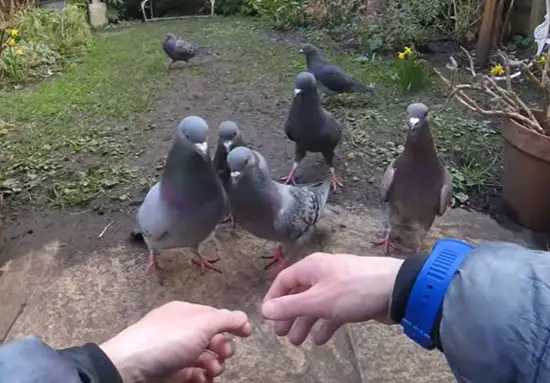
Past Maltreatment
In addition, pigeons have very sensitive dispositions and can recognize individual human faces, retaining those memories for extended periods. In fact, a recent study revealed that feral pigeons could discern one human from another, regardless of the clothing they wear.
If a pigeon has been treated cruelly while still young, fed by someone unfamiliar, or otherwise maltreated, it may act aggressively toward the offender. Should the mistreatment be severe, they may even begin to direct hostility toward humans in general.
Adolescence
Adolescence is a turbulent time, not only for humans but also for pigeons. During this period, adolescent pigeons may display aggressive behavior towards humans, especially pet pigeons.
This behavior is typically caused by the hormonal imbalance that characterizes this stage of development. Yet, the pigeon’s aggression subsides when the hormones become more balanced, leaving them gentle and sweet.
Affinity for Shiny Objects
Pigeons, like many birds, have an affinity for shiny objects. This is due to two things: their natural curiosity and their need to search for food. It’s not uncommon to see pigeons pecking at anything that sparkles, from glass beads and buttons to shiny coins.
This behavior can be alarming to humans, as it may appear that the pigeon is attacking.
Here’s a video showing a flock of feral pigeons perching, scratching, and pecking at humans.
What Does A Pigeon Attack Look Like?
Have you ever wondered what a pigeon attack looks like? After all, it’s not something most people come across in their daily lives.
A pigeon attack typically involves the bird swooping down and pecking at a perceived threat, such as a person or another animal. Pigeons may also engage in aggressive displays, such as puffing up their feathers and making loud vocalizations, to deter perceived threats.
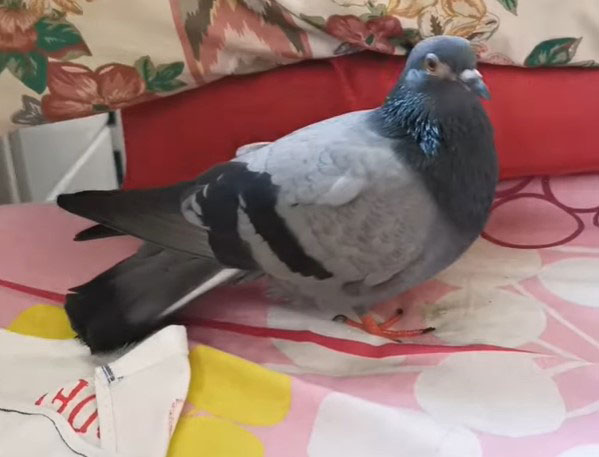
In some cases, pigeons may attack in groups or flocks, making them more intimidating and increasing the risk of injury to the target.
How Dangerous Is A Pigeon Attack?
Pigeon attacks are generally considered low-level aggressive behavior. Attacks on humans are generally not dangerous and are unlikely to cause serious injury.
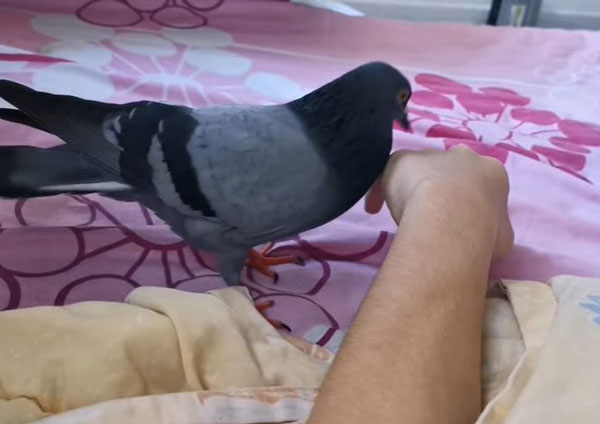
Pigeons do not have any natural weapons to cause significant harm. They may peck or bite if provoked, but these actions are generally not strong enough to cause serious injury.
Though rare, a pigeon attack can result in the risk of infection. While the risk of pigeon-related diseases is rare, pigeon droppings can contain harmful bacteria. So it’s important to avoid contact with them during an attack.
How to Survive a Pigeon Attack?
If you find yourself facing a pigeon attack, here are some ways to survive and protect yourself:
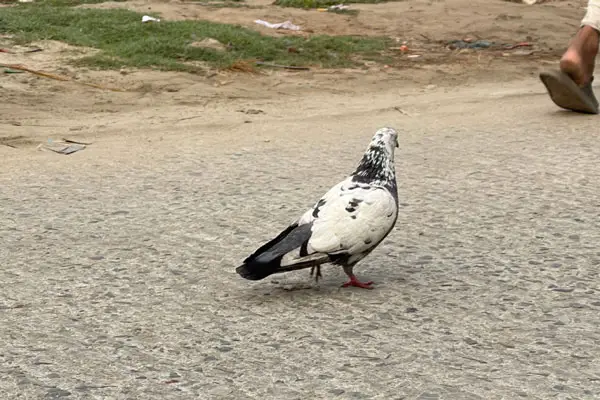
Remain Calm and Still
Pigeons are more likely to attack if they feel threatened, so try not to panic or make sudden movements. Stand still and avoid making direct eye contact with the pigeon, as they may interpret this as a sign of aggression.
Use a Barrier
If possible, use an umbrella or a jacket to shield yourself from the attack. This will give you extra protection and make the pigeon less likely to attack.
Keep Your Distance
If you can, step away from the pigeon slowly and steadily. This will reduce the likelihood of the pigeon attacking, and you can avoid any physical harm.
Use Distractions
If you have something to throw, such as food or a small object, use it to distract the pigeon and draw its attention away from you. This can give you time to move away and find a safer location.
Call for Help
If you’re in a public place and feeling threatened, seek help from others around you. You can also call for help from the local authorities, such as the park ranger or animal control.
Know When to Retreat
If the pigeon continues to attack, it may be necessary to retreat and find a safer location. Find a place where you can escape from the pigeon, such as a nearby building or car, and call for help if needed.
If you’re interested in learning more about pigeon behavior and characteristics, you might find our articles on frillback pigeons and why pigeons fight with each other informative. Our article on why pigeons fight with each other explores the reasons behind this common behavior, while our article on frillback pigeons provides insights into the unique appearance and breeding of these fascinating birds. Check out these articles to learn more about the diverse world of pigeons!FAQs
Read on to get the answers to your questions about why pigeons attack humans!
Avoid bird assaults by wearing a hat or umbrella, avoiding ponytails and buns, and not wearing sparkling objects. It may also help to carry some unsalted peanuts, as these could act as a distraction.
Most importantly, stay away if you stumble across a nest or baby bird. The mother bird is likely nearby and eager to defend them.
Pigeons have a hard, sharp beaks, but their bites are unlikely to cause significant pain or injury. However, it is still best to avoid being bitten by a pigeon, as they may carry diseases that can be transmitted to humans.
Crows may have a notorious reputation for carrying long-term grudges, but fortunately, pigeons are not as vengeful. Yet, once a pigeon sees a human as a danger, it is seemingly impossible to persuade them otherwise.
Conclusion
While they are often regarded as a nuisance and a problem, pigeons are generally not seen as a threat to humans. However, pigeons may attack humans for several reasons, including defense, food-related aggression, and territorial behavior.
In these cases, the pigeon may fly at the person, peck at them, or even strike them with its wings in an attempt to scare them off. You can prevent pigeon attach by staying calm, using a barrier, keeping your distance, or using treats as a distraction.
While not dangerous, a pigeon attack can expose you to bacteria that cause salmonella and E. coli and other diseases such as avian influenza and histoplasmosis. So take precautions and avoid contact, especially with their droppings.
